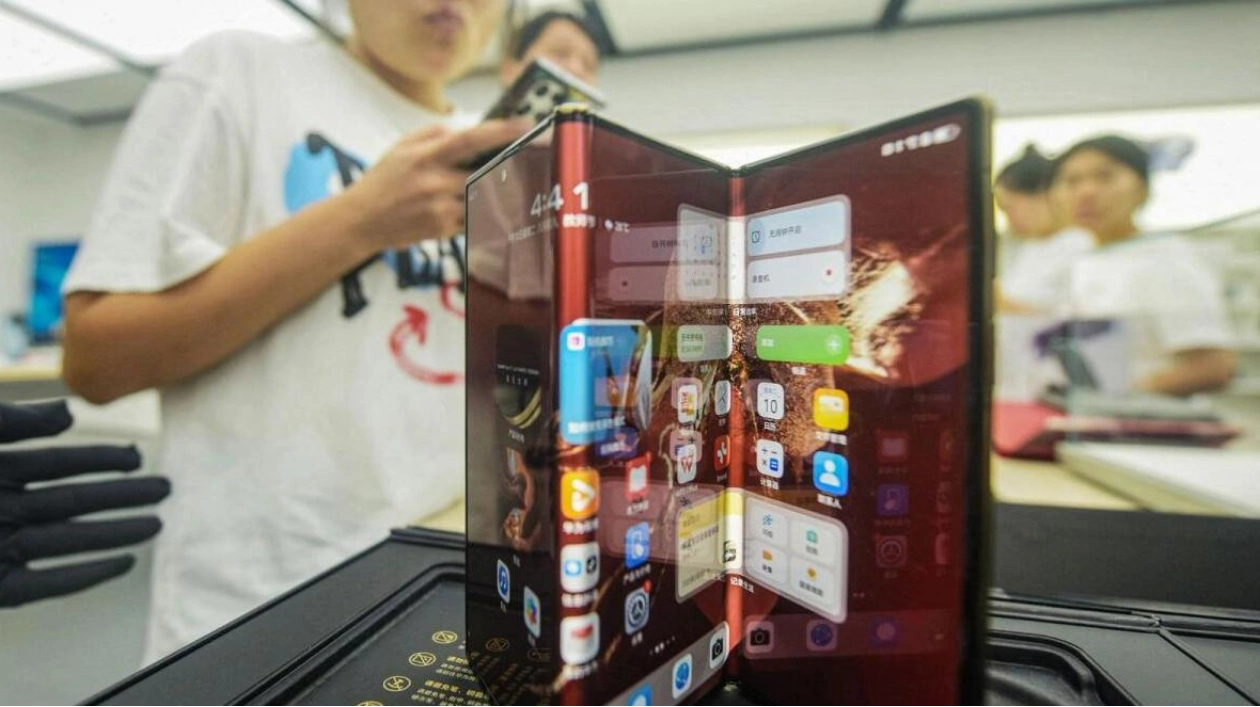Apple's latest iPhone 16 failed to captivate investors, as the long-anticipated AI features remain in testing mode, while Huawei's industry-first tri-fold phone has intensified the competition to lead the global smartphone market.
Apple's stock dropped by 1% during premarket trading on Tuesday, following the unveiling of the new iPhones by the U.S. tech giant. These new models feature hardware-level integration for AI-based applications, but with minimal changes to the external design. The AI features, branded as Apple Intelligence, aim to enhance Siri, the company's voice assistant, and improve camera functionality. These AI capabilities will be available on iPhones in beta form next month, with no specific timeline for full deployment.
In contrast, Huawei showcased its new Mate XT, a tri-fold device that has already garnered over 4 million pre-orders without requiring a deposit. The Mate XT boasts an AI assistant with text summarization, translation, and editing functions, along with AI-enhanced image editing features. However, with a starting price of $2,800—more than double that of the comparable iPhone 16 Pro Max—and limited production, the tri-fold phone is expected to primarily serve as a testament to Huawei's technological prowess rather than a significant sales driver.
Both the Mate XT and iPhone 16 are set to go on sale on September 20. Huawei's successful launch underscores its resilience in navigating U.S. sanctions and strengthens its competitive stance against Apple in China, where some consumers have criticized the new iPhone 16 for its lack of AI features. Apple has not yet announced an AI partner in China for the 16s, and its Apple Intelligence software will only be available in Chinese languages next year.
Huawei's return to the high-end smartphone segment last year, with a device powered by a domestically made chip, defied U.S. sanctions that had cut off its access to the global chipset supply chain. The launch of the Mate 60 Pro surprised analysts and U.S. officials. Huawei's strong sales in China have also helped it surpass Samsung Electronics as the leading vendor of foldable phones worldwide.






